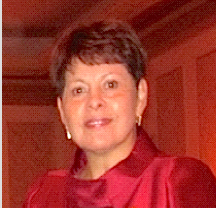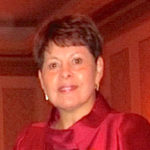
Have you ever wondered, “What if I could use my talents, learned experience, unique skills and part of my time to help others?”
Everyone’s life experience is different. That’s what makes each of us unique. Yet all that experience, all that accumulated knowledge, all that real-life wisdom, may be dormant.
Would you or some of your colleagues be interested in working with older adults beyond the normal structure of the workday? Do you know residents who could share a tip or two with their peers? Mentoring as a form of companionship for older adults can provide the opportunity to help, support and improve the quality of their lives as well as to add purpose to the mentor’s life.
As those who work in senior living are well aware, being an older adult often comes with significant changes in one’s life. Some of these changes are positive and life-affirming, but others can be in the form of challenges to health, safety and quality of life.
Isolation and loneliness can lead to anxiety, depression, illness and vulnerability to abuse. Poor vision, weak leg muscles, and medications to treat hypertension, depression and insomnia can lead to injurious falls. A mentor could help, or in many instances prevent, such occurrences and also could informally assess someone’s living space for potential dangers.
Active older adults can be excellent mentors, benefiting from the experience themselves by trying something new to them or reducing their own loneliness.
Mentoring Anyone? II is a low-cost strategy designed to improve the health and well-being of older adults within a community. Researchers of the program have found that by joining the program, older adults (mentors or mentees) have experienced:
- Elevated self-esteem.
- Reduced feelings of isolation and loneliness.
- Improved physical and mental well-being.
A Mentoring Anyone? II program can enhance the vision of aging services providers, senior living communities and hospitals, requiring only a small budget for supplies and a part-time staff supervisor from a social service agency, who monitors the program to ensure that it complies with best practices and the goals of the program. Prospective mentors receive the training, resources and skills they need for optimum effectiveness with mentees.
“I have family, a granddaughter, who is very kind and I know tries her best to help me, because I partially lost mobility. When I was offered a mentor, however, I was so glad, because now I spend a special time with her just for me, and I know I am not imposing on her,” said an 84-year-old participant at a senior center in Englewood, NJ, where the program has been implemented over the past four years. “She accompanies me to the mall, the library, concerts. And when we went to the mall, I was able to choose, on my own, the things I needed. I did not have to wait for my family to pick them for me, perhaps not like them and not be able to express it so that I did not offend them.”
Another mentee, a grandmother in her late 70s caring for her three-year-old granddaughter, wanted a mentor but did not know what to expect at first. Two months into the experience, she came to the program to express her gratitude and thanks for her mentor.
“I am so glad I have this wonderful mentor,” she said. “She listens to what I say. She does not have to say too much, but those moments with her are so precious because I know someone listen and someone cares. I feel as if I have regained my power.”
Marcia Gongora, a social worker with more than 35 years of experience, is a program designer and author of the booklet “Mentoring Anyone? II.” Contact her at [email protected] for more information about how to start a mentoring program for older adults or how to obtain the instructional booklet and package.




